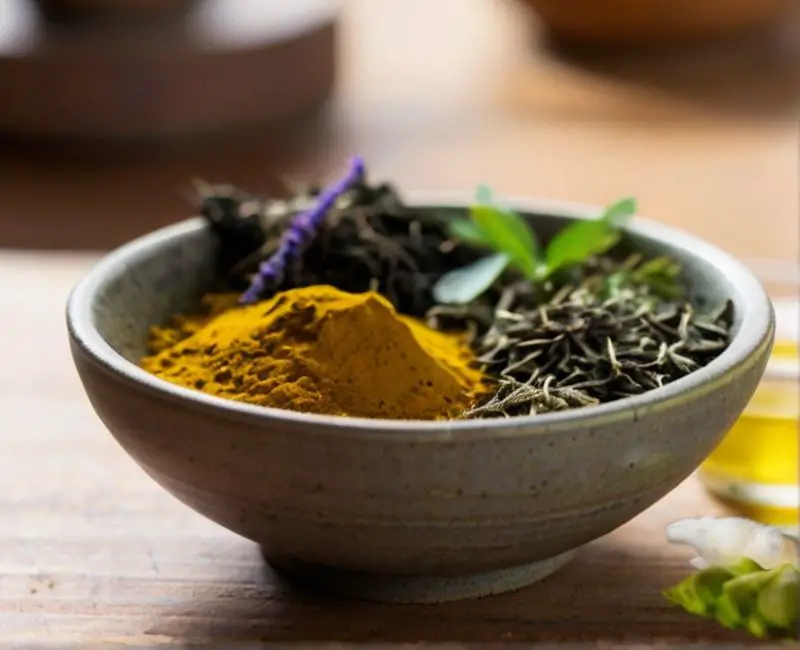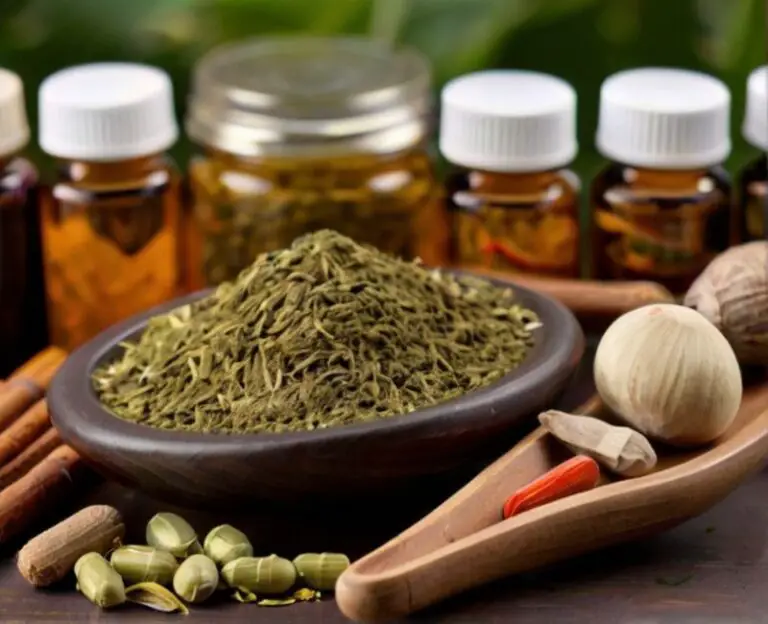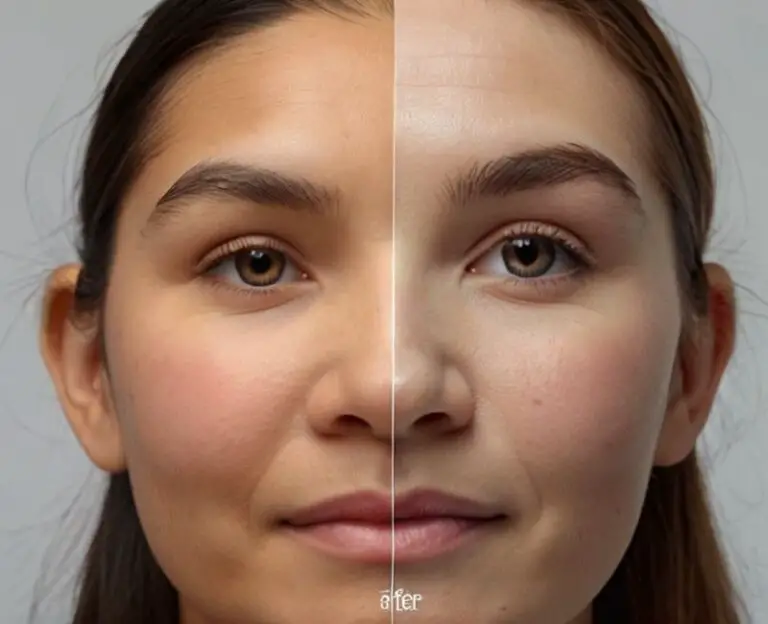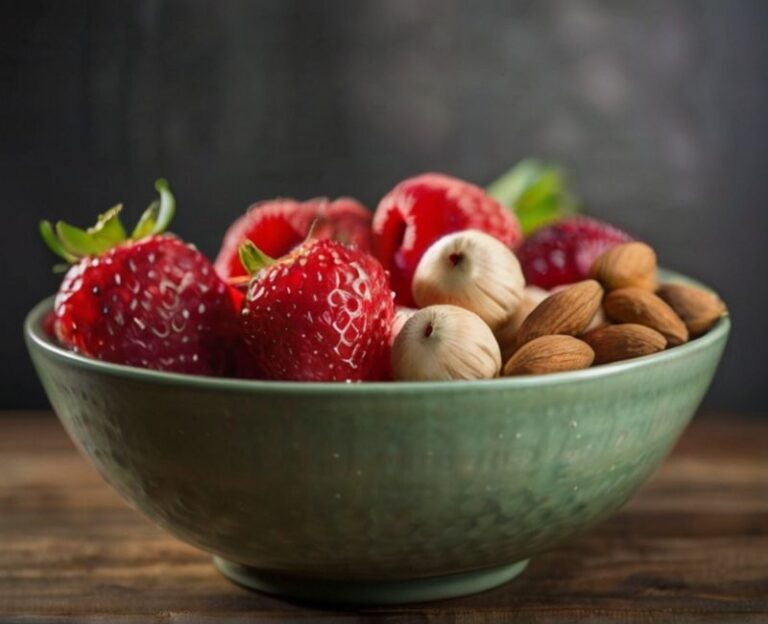10 Skin Regeneration Herbs

Throughout history, cultures worldwide have recognized the profound healing abilities of botanicals, making them a cornerstone of holistic skincare practices.
Herbs celebrated for their capacity to revitalize the skin, mend damaged tissue, and unveil a more youthful complexion.
From the plants of aloe vera to the antioxidant prowess of green tea, nature bestows a rich array of botanical treasures capable of addressing a multitude of skin concerns, there exists a herb perfectly suited to your skincare aspirations.
Lets explore these skin regeneration herbs, and offer practical advice for ordered integrating them into your skincare routine.
Read our blog to provide invaluable insights and inspiration for cultivating healthier, more luminous skin, naturally.
Science Behind Skin Regeneration:
The science underpinning skin regeneration through herbal remedies sarch into the complex interactions between botanical compounds and the skin’s innate processes of repair and rejuvenation. Across diverse cultures and time periods, herbs have been potent healing properties, and modern scientific inquiry continues to disclose the mechanisms by which they forward skin health.
These include collagen synthesis, cellular proliferation, inflammation modulation, and antioxidant defense. Herbs contain bioactive constituents that target these pathways, facilitating the restoration of healthy skin tissue.
Herbs abundant in antioxidants, such as polyphenols and flavonoids, counteract oxidative stress and shield skin cells from damage. This protection promotes overall skin vitality and supports the regeneration process.
Most renowned skin-regenerating herbs is aloe vera, prized for its soothing and wound-healing abilities. Aloe vera gel, rich in polysaccharides and nutrients, accelerates wound closure and enhances collagen formation, aiding in the repair of damaged skin.
Another notable example is green tea, celebrated for its high levels of polyphenols, particularly EGCG. Green tea polyphenols exhibit potent antioxidant and anti-inflammatory effects, safeguarding the skin against UV-induced damage and stimulating collagen production.
Some other herbs like; calendula, chamomile, and lavender offer antimicrobial and anti-inflammatory benefits, aiding in wound healing and soothing irritated skin. Whether applied topically or consumed as herbal infusions, these herbs contribute to overall skin health and regeneration.
Science behind skin regeneration with herbs illuminates nature’s capacity to support skin vitality and resilience, offering promising avenues for promoting skin regeneration and enhancing well-being.
10 skin regeneration herbs:
Skin regeneration herbs, the natural potency of botanicals to facilitate skin repair, renewal, and rejuvenation. Here are 10 renowned herbs celebrated for skin-regenerating:
1. Aloe Vera
Aloe Vera, boosts essential vitamins, minerals, and polysaccharides that renowned wound healing, increase collagen production. It’s a superb remedy for irritated skin.
2. Green Tea
Contains epigallocatechin gallate (EGCG), its shields the skin from sun including damage, boosts collagen synthesis and diminishes inflammation. This leads to enhanced skin elasticity, hydration, and overall appearance.
3. Calendula
With antimicrobial, anti-inflammatory, and wound-healing properties, calendula speeds up skin recovery, soothes irritation, and diminishes redness. It’s particularly effective for treating cuts, scrapes, and dermatitis.
4. Chamomile
Known for its calming and anti-inflammatory effects, chamomile eases skin discomfort, reduces redness, and supports healing. It’s beneficial for conditions such as eczema, dermatitis, and sunburn.
5. Lavender
Lavender offers antimicrobial, anti-inflammatory, and wound-healing benefits. It accelerates skin renewal, minimizes scarring, and soothes inflammation, making it valuable for addressing burns, cuts, and acne.
6. Rosehip
Rich in vitamin C, antioxidants, and fatty acids, rosehip promotes collagen synthesis, fades scars, and refines skin texture. It moisturizes, diminishes wrinkles, and shields against environmental aggressors.
7. Gotu Kola
Gotu kola stimulates collagen production, enhances blood circulation, and facilitates wound healing. It enhances skin elasticity, reduces stretch marks, and aids in repairing damaged skin.
8. Licorice Root
Containing glycyrrhizin, licorice root possesses anti-inflammatory and skin-lightening properties. It alleviates redness, calms irritation, and fades hyperpigmentation, making it effective for rosacea and melasma.
9. Turmeric
Renowned for its anti-inflammatory and antioxidant properties, turmeric mitigates inflammation, combats acne-causing bacteria, and accelerates wound healing. It’s beneficial for inflammatory skin conditions and scars.
10. Ginseng
Ginseng stimulates collagen synthesis, improves skin elasticity, and promotes skin regeneration. It boosts circulation, diminishes fine lines and wrinkles, and contributes to a more youthful complexion.
These skin regeneration herbs into skin care can bolster overall skin health, refine texture and tone, and impart a restore appearance.
Hydrating herbs for skin:-
Here are three hydrating herbs known for their exceptional moisturizing properties, along with detailed benefits:
Hyaluronic Acid:
This hydrating powerhouse deeply replenishes the skin, keeping it plump, supple, and hydrated. By diminishing the appearance of fine lines and wrinkles, hyaluronic acid enhances skin texture and radiance.
1. Cucumber
Cucumber packed with vitamins, minerals, and antioxidants, it effectively replenishes lost moisture, soothes dryness, and reduces puffiness and inflammation.
Cucumber’s cooling effect makes it perfect for soothing sunburns and calming sensitive skin.
2. Rose
It’s a delightful aroma but also for its hydrating and soothing attributes, rose is a cherished herb in skincare. Rose water, lead as a balancing skin pH, natural astringent, and maintaining hydration levels. Its anti-inflammatory and antibacterial properties alleviate redness, irritation, and acne.
These hydrating herbs into your skincare routine ensures your skin remains moisturized, healthy, and radiant and effective hydration suitable for all skin types.
Topical herbs for skin:
Exploring topical herbs for skincare reveals a wealth of natural remedies renowned for their skin-enhancing properties:
1. Lavender
Lavender essential oil, containing linalool and linalyl acetate, effectively reduces redness, inflammation, and skin irritation. It’s often sought after for calming conditions such as eczema, dermatitis, and sunburns.
2. Calendula
Rich in flavonoids, carotenoids, and essential oils, it comforts irritated skin, diminishes redness and swelling, and supports tissue regeneration. Frequently applied topically, calendula proves gentle yet effective in treating minor wounds, burns, and rashes, commonly found in creams, ointments, and salves.
3. Witch Hazel
Derived from the witch hazel shrub, witch hazel is a natural astringent lauded for its pore-tightening and anti-inflammatory qualities. Its aids in reducing inflammation, soothing skin irritations, and tightening pores. Widely used in acne treatments and skincare routines, witch hazel provides relief from conditions like eczema and psoriasis, often applied via cotton pads or infused in toners and cleansers.
4. Tea Tree Oil
Containing terpinen-4-ol, it effectively combats bacteria, fungi, and viruses, making it a valuable treatment for acne and fungal infections. Diluted with a carrier oil, tea tree oil serves to alleviate inflammation, soothe irritation, and promote skin healing when applied topically.
These topical herbs routines offers a natural and effective approach to address various skin concerns and achieve healthier, more radiant skin.
FAQ:
Q. Which skincare ingredients are best for fighting aging?
Opt for ingredients like Retinoids, Vitamin C, Hyaluronic Acid, Peptides, and Niacinamide for effective anti-aging benefits.
Q. How can I address acne-prone skin without causing irritation?
Use gentle, non-comedogenic products containing ingredients such as salicylic acid or benzoyl peroxide. Avoid harsh scrubbing and excessive product application.
Q. What SPF should I aim for in my daily sunscreen?
Look for good brand with SPF 30 or higher to protect against both UVA and UVB rays for daily sheild.
Q. How frequently should I exfoliate my skin?
Its up to skin types, exfoliate 1-2 times weekly. Not to overdo it, use moderation.
Q. How can I reduce the appearance of dark under-eye circles?
Ensure adequate sleep and hydration. Additionally, consider using eye creams containing ingredients like vitamin K, caffeine, or hyaluronic acid for diminishing dark circles.
Take Away:
- You have an awesome list of skin regeneration herbs, enjoy the incredible world of botanical remedies that nurture, heal, and revive the skin naturally.
- From the comforting qualities of chamomile to the rejuvenating effects of rosehip, aloe vera, and green tea, each herb brings its unique benefits to the forefront of skincare.
- Your engagement and enthusiasm have been truly invaluable, and I hope you’ve found inspiration and insights.
- Feel free to questions in the comments, thought and your next queries.
- Don’t forget to join us on Pinterest for an abundance of skincare inspiration, DIY recipes, and beauty advice.
Best Match Anti-Aging Remedies: Face Mask For Wrinkles





